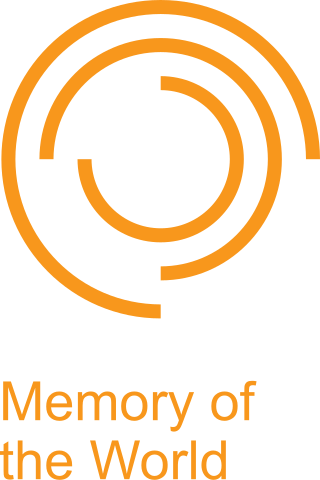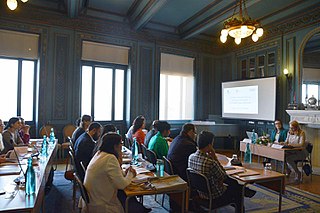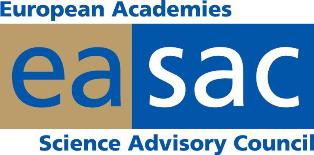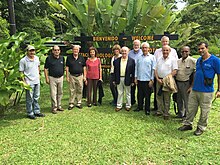The Intergovernmental Oceanographic Commission of UNESCO (IOC/UNESCO) was established by resolution 2.31 adopted by the General Conference of the United Nations Educational, Scientific and Cultural Organization (UNESCO). It first met in Paris at UNESCO Headquarters from 19 to 27 October 1961. Initially, 40 States became members of the commission. The IOC assists governments to address their individual and collective ocean and coastal management needs, through the sharing of knowledge, information and technology as well as through the co-ordination of programs and building capacity in ocean and coastal research, observations and services.
Development communication refers to the use of communication to facilitate social development. Development communication engages stakeholders and policy makers, establishes conducive environments, assesses risks and opportunities and promotes information exchange to create positive social change via sustainable development. Development communication techniques include information dissemination and education, behavior change, social marketing, social mobilization, media advocacy, communication for social change, and community participation.

Payame Noor University is a public university in Iran, with its headquarters in Tehran. Established in 1988, is a legal body under the Ministry of Science, Research and Technology. Payame Noor means "the message of light" in Persian.

UNESCO's Memory of the World (MoW) Programme is an international initiative launched to safeguard the documentary heritage of humanity against collective amnesia, neglect, decay over time and climatic conditions, as well as deliberate destruction. It calls for the preservation of valuable archival holdings, library collections, and private individual compendia all over the world for posterity, the reconstitution of dispersed or displaced documentary heritage, and increased accessibility to, and dissemination of, these items.
The International Social Science Council (ISSC) was an international non-governmental organization promoting the social sciences, including the economic and behavioural sciences. Founded in 1952, the organization was based out of UNESCO headquarters in Paris, France.

The World Academy of Art and Science (WAAS), founded in 1960, is an international non-governmental scientific organization and global network of more than 800 scientists, artists, and scholars in more than 90 countries.
The InterAcademy Partnership (IAP) is a global network consisting of over 140 national and regional member academies of science, engineering, and medicine. It was founded in 1993 as the InterAcademy Panel (IAP). In 2000, the IAP founded the InterAcademy Council (IAC) and the InterAcademy Medical Panel (IAMP). The partnership was established in 2016 when it merged the three inter-related networks into IAP for Health, IAP for Science, and IAP for Policy.

EUCLID, also called Pôle Universitaire Euclide or Euclid University, is an international intergovernmental organization with a university charter established in 2008. It has official headquarters in The Gambia and in the Central African Republic, but also maintains an executive office in Washington, D.C. Its primary mandate is to train officials for its participating states, but its programs are also offered to the general public. The institution's current secretary-general is Winston Dookeran.
Evidence Informed Policy Network (EVIPNet) is a network, sponsored by the World Health Organization (WHO), which attempts to improve public health, especially in developing countries, by coordinating the efforts of policymakers and health researchers.

The Quadrennial Diplomacy and Development Review (QDDR) is a study by the United States Department of State, conducted beginning in 2009 and intended to be done every four years, that analyzes the short-, medium-, and long-term blueprint for the United States' diplomatic and development efforts abroad. It seeks to plan on a longer-term basis than the usual year-to-year, appropriations-based practice, and to integrate diplomacy and development missions. It similarly seeks to correlate the department’s missions with its capacities and identify shortfalls in resourcing. Finally, it is a precursor to core institutional reforms and corrective changes. The first review was completed by the end of 2010. A second review began during 2014 and was released in April 2015. No further reviews have taken place.

Mohamed Hag Ali Hag el HassanOMRI GCONMC FAAS FIAS FTWAS is a Sudanese-Italian mathematician and physicist who co-founded numerous scientific councils. He is the President of The World Academy of Sciences and Sudanese National Academy of Sciences.

The United Nations University Institute on Comparative Regional Integration Studies (UNU-CRIS) is a Research and Training Institute of the United Nations University (UNU). Based in Bruges, Belgium since 2001, UNU-CRIS specializes in the comparative study of regional integration and the provision of global and regional public goods, including environmental stability, poverty reduction, peace, and justice.

The Commission on Science and Technology for Sustainable Development in the South (COMSATS) is an inter-governmental organization, having a membership of 27 developing countries from three continents, Latin America, Africa and Asia. Twenty-five S&T/R&D institutions of developing countries are affiliated with COMSATS as members of its Network of International S&T Centers of Excellence for Sustainable Development in the South. The organization aims at sustainable socio-economic uplift of the developing countries through scientific and technological means while adopting North–South and South–South cooperation.

Water diplomacy focuses on establishing novel solutions founded on a scientific basis and sensitive to societal constraints to a wide range of water problems. Tools of water diplomats include environmental policy, water management strategy, and engineering solutions and are applied within the context of the individual water problem at the appropriate scale.

The Global Young Academy (GYA) is an international society of young scientists, aiming to give a voice to young scientists across the globe.
Science diplomacy describes how scientific exchanges and the cross-border collaboration of scientists or scientific organizations can perform diplomatic functions in the context of international relations. Most often this diplomacy happens as part of scientific cooperation as a means of building relationships between states and within international organizations. Science diplomacy is a process by which states, international organizations and non-state actors represent themselves and their interests. It is a global phenomenon.
Science and technology in Uzbekistan examines government efforts to develop a national innovation system and the impact of these policies.

The Academia Nacional de Ciencias is Costa Rica's Academy of Sciences. It was created as a “permanent forum for discussion and scientific analysis,” and serves both as an honorific society and a source of scientific advice for the government. Its mandate is to promote scientific culture and progress within Costa Rica, and collaboration between national and international agencies. It maintains membership in international organizations such as the International Council for Science (ICSU), the InterAmerican Network of Academies of Sciences (IANAS) and the Third World Network (TWN). Its headquarters are in San Pedro in the province of San José.

María Margarita Gual Soler is a Spanish science diplomat, policy advisor, international speaker and educator. She is best known for helping elevate the role of science in international diplomacy and strengthening the connections between science, policy and society. She played a major role in promoting science diplomacy around the world by developing its educational and training approaches with the Center for Science Diplomacy of the American Association for the Advancement of Science (AAAS). She advised the science diplomacy strategies of several governments and the European Union and helped re-establish the scientific linkages between the United States and Cuba. Gual Soler has received many fellowships and awards, including the Global Competitiveness Leadership Fellowship at Georgetown University, was named one of 40 Under 40 Latinos in Foreign Policy by The Huffington Post and is a former Aspen Ideas Festival Scholar. In 2019 she was selected to join Homeward Bound, the largest-ever expedition of women in Antarctica.

The European Academies' Science Advisory Council (EASAC) is a regional association of National Academies of science. Its members are 25 National Science Academies of the Member States of the European Union (EU), and the National Science Academies of Norway, Switzerland and the UK. Malta and Luxembourg do not have National Academies of Science. A pan-European Academy (Academia Europaea) and a network of all Academies from across the continent of Europe (ALLEA) also have membership. EASAC was founded in June 2001 and was headquartered at the German National Academy of Sciences Leopoldina in Halle (Saale) until 31 December 2022.













